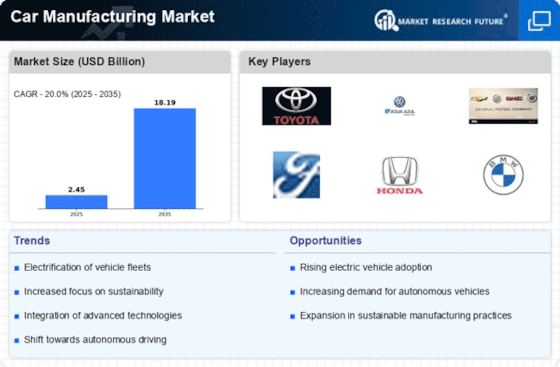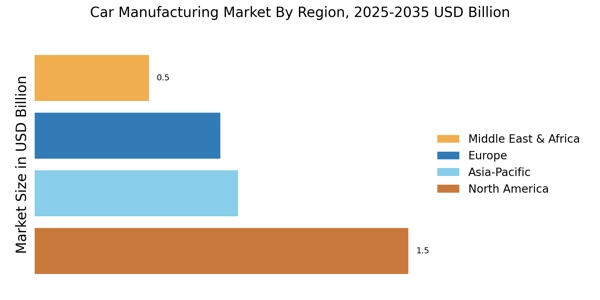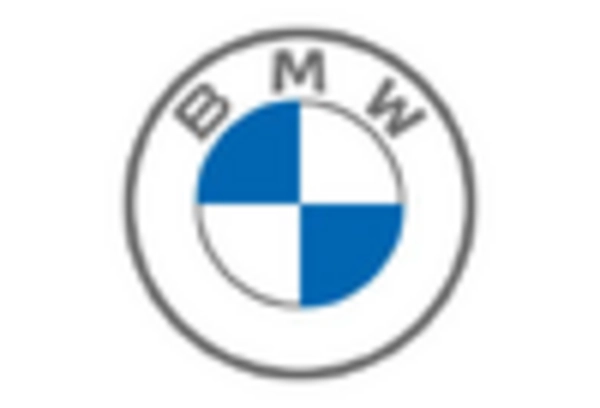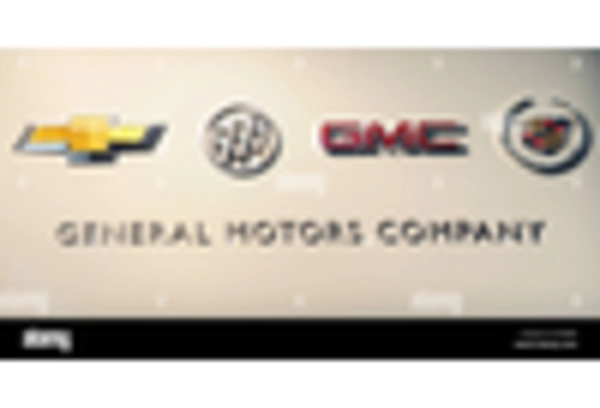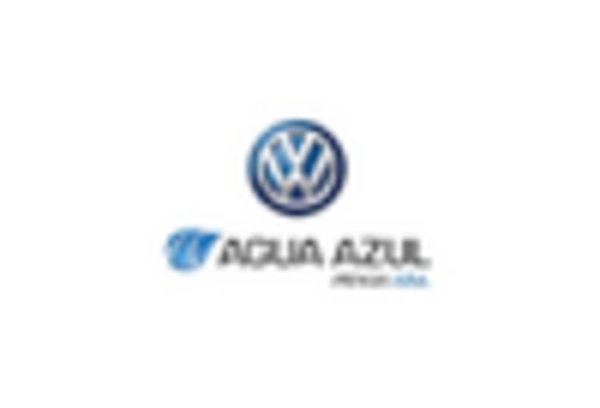Consumer Preferences
Consumer preferences are a critical driver in the Car Manufacturing Market. As buyers become more discerning, their expectations for vehicle features, performance, and sustainability are evolving. In 2025, surveys indicate that nearly 70% of consumers prioritize fuel efficiency and eco-friendliness when purchasing a vehicle. This shift is prompting manufacturers to focus on producing hybrid and electric models that align with consumer values. Additionally, the demand for advanced safety features and in-car technology is on the rise, influencing design and production strategies. Manufacturers that can effectively respond to these changing preferences are likely to gain a competitive edge in the market. Thus, understanding and adapting to consumer preferences is essential for success in the Car Manufacturing Market.
Regulatory Compliance
Regulatory compliance is a significant driver in the Car Manufacturing Market. Governments worldwide are implementing stringent emissions standards and safety regulations to promote cleaner and safer vehicles. In 2025, it is projected that compliance with these regulations will require manufacturers to invest heavily in research and development, particularly in electric and hybrid vehicle technologies. Failure to meet these standards can result in substantial fines and loss of market access, compelling manufacturers to prioritize compliance in their strategic planning. This regulatory landscape not only influences production processes but also shapes consumer perceptions and purchasing decisions. As such, navigating the complexities of regulatory compliance is crucial for manufacturers aiming to thrive in the Car Manufacturing Market.
Sustainability Initiatives
The Car Manufacturing Market is increasingly influenced by sustainability initiatives. Manufacturers are adopting eco-friendly practices to reduce their carbon footprint and meet regulatory requirements. This shift is evident in the growing production of electric vehicles (EVs), which accounted for approximately 10% of total vehicle sales in 2025. Additionally, the use of recyclable materials in vehicle production is on the rise, with many companies aiming for a circular economy. As consumers become more environmentally conscious, the demand for sustainable vehicles is expected to grow, pushing manufacturers to innovate and invest in green technologies. This trend not only enhances brand reputation but also aligns with global efforts to combat climate change, making sustainability a crucial driver in the Car Manufacturing Market.
Technological Advancements
Technological advancements play a pivotal role in shaping the Car Manufacturing Market. Innovations such as advanced driver-assistance systems (ADAS), connected vehicles, and artificial intelligence are transforming the automotive landscape. In 2025, it is estimated that over 30% of new vehicles will be equipped with some form of connectivity, enhancing safety and user experience. Furthermore, the integration of automation in manufacturing processes is streamlining production, reducing costs, and improving efficiency. As technology continues to evolve, manufacturers are compelled to adapt and invest in research and development to remain competitive. This ongoing technological evolution not only enhances vehicle performance but also meets the changing preferences of consumers, making it a significant driver in the Car Manufacturing Market.
Global Supply Chain Dynamics
The Car Manufacturing Industry. The interconnectedness of suppliers, manufacturers, and distributors creates both opportunities and challenges. In 2025, disruptions in supply chains, such as shortages of critical components like semiconductors, have led to production delays and increased costs for manufacturers. This situation has prompted companies to reevaluate their supply chain strategies, focusing on resilience and flexibility. Additionally, the trend towards local sourcing is gaining traction as manufacturers seek to mitigate risks associated with global supply chains. By optimizing supply chain operations, manufacturers can enhance efficiency and reduce costs, ultimately influencing their competitiveness in the Car Manufacturing Market. Thus, understanding and adapting to supply chain dynamics is essential for sustained growth.


